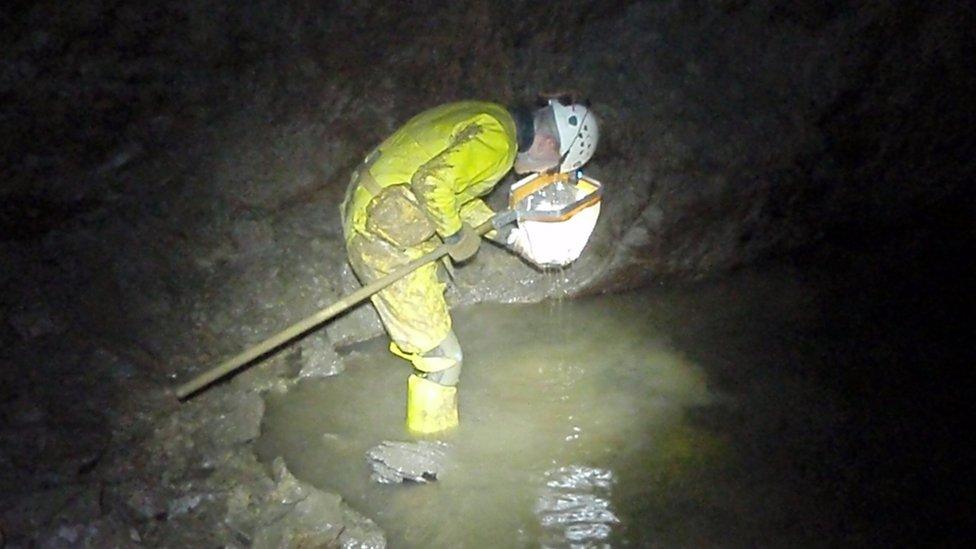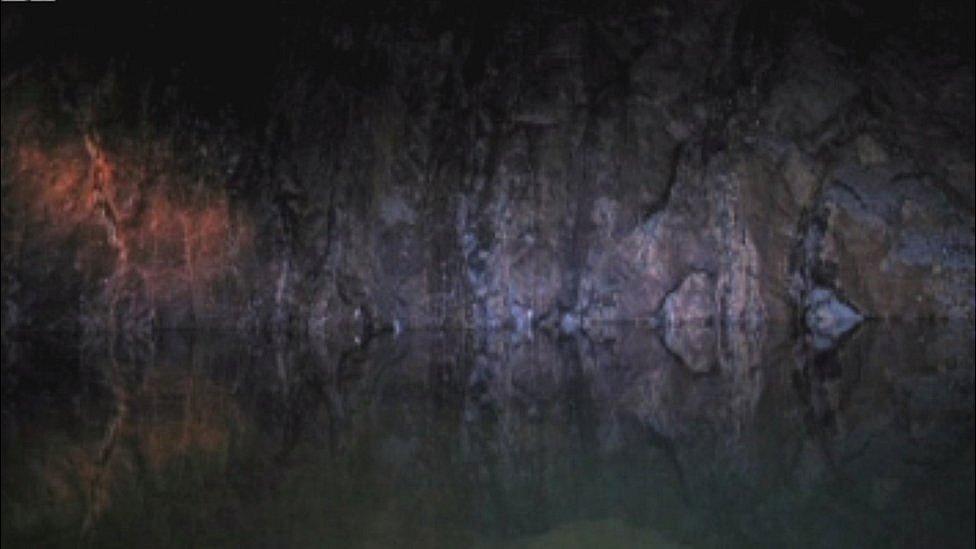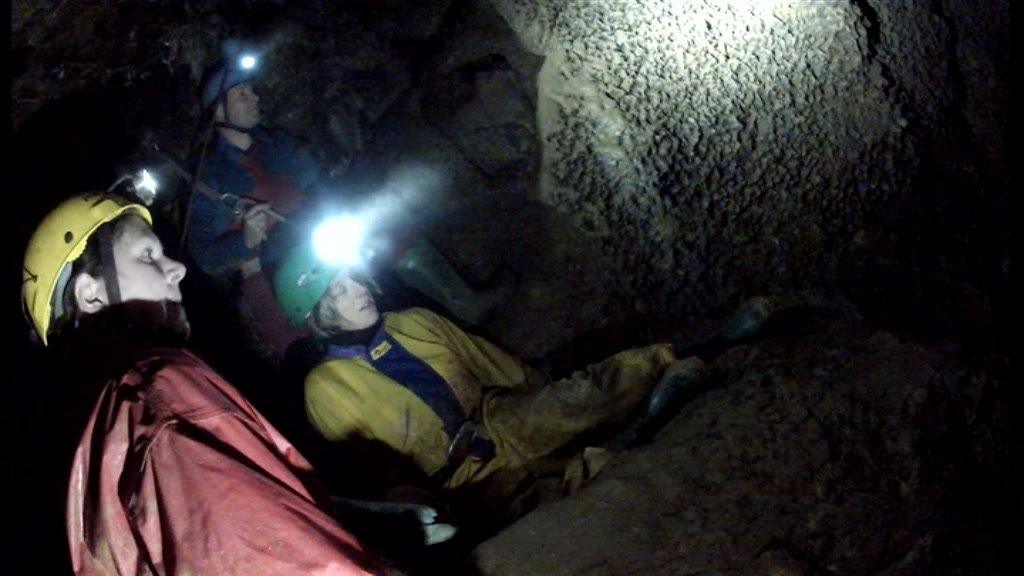Bristol's 200-million-year-old shrimp cave given SSSI protected status
- Published

Along with Koch's shrimp - a species that is not usually found in large underground lakes - the subterranean population also includes the Font shrimp
A 200-million-year-old cave in Bristol has been recognised as one of the UK's most important geological sites.
The 60m-deep (196ft) Pen Park Hole, in Southmead, has been made a Site of Special Scientific Interest (SSSI).
The cavern, which boasts a 20m-deep lake, supports a "nationally important community" of blind shrimps.
Matt Shardlow, from conservation charity Buglife, said he was delighted they were now formally protected.
The underground cavern, which dates back to the Jurassic period, was created by rising hot water which dissolved and mineralised the rock.

The 60m (196ft) deep Pen Park Hole, in Southmead is described as the "best known example of a hydrothermal cave system in the UK" by Natural England
Described as the "best known example of a hydrothermal cave system in the UK" by Natural England, it is also home to "some of the longest surviving species" in the country.
Along with Koch's shrimp - a species that is not usually found in large underground lakes - the subterranean population also includes the Font shrimp.
"There are thousands of these little blind shrimps swimming around underneath the suburbs of Southmead," Mr Shardlow said.
"A great many places that are home to rare little animals get no formal protection, so we are delighted that these cave shrimps will now be safer from harm."
SSSI is granted by Natural England, which works to protect nature and landscapes in the UK.
- Published14 December 2012
